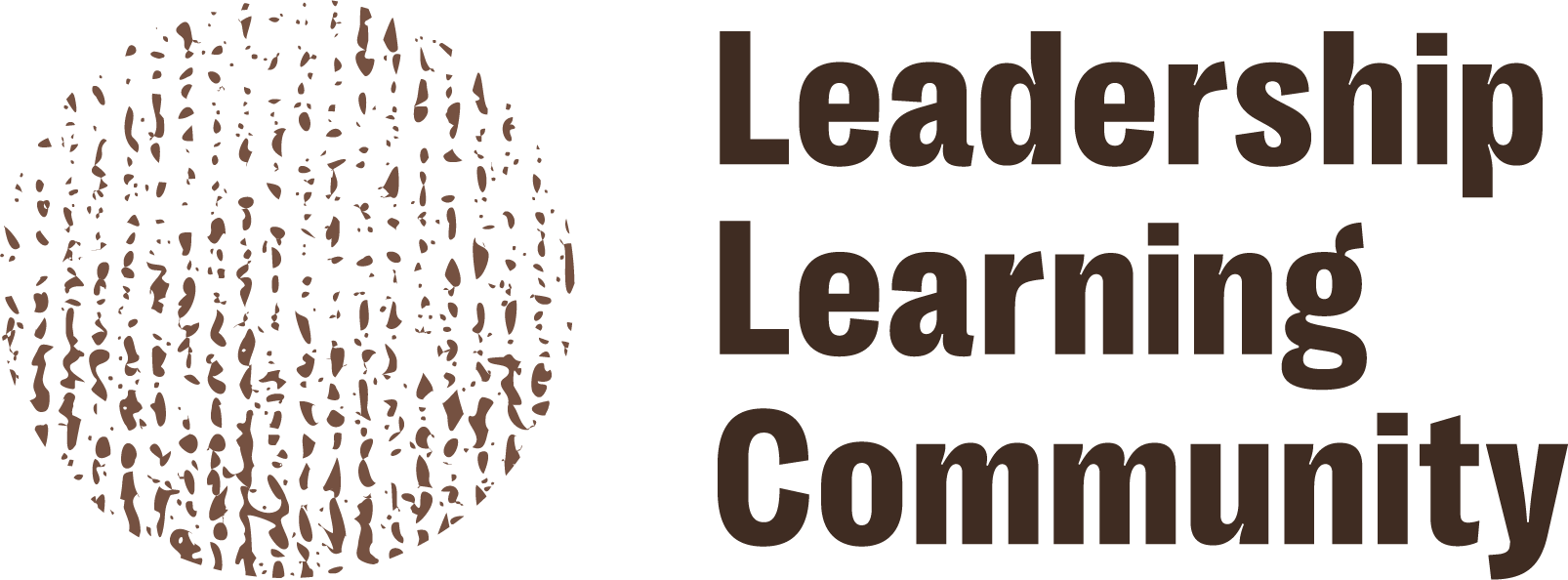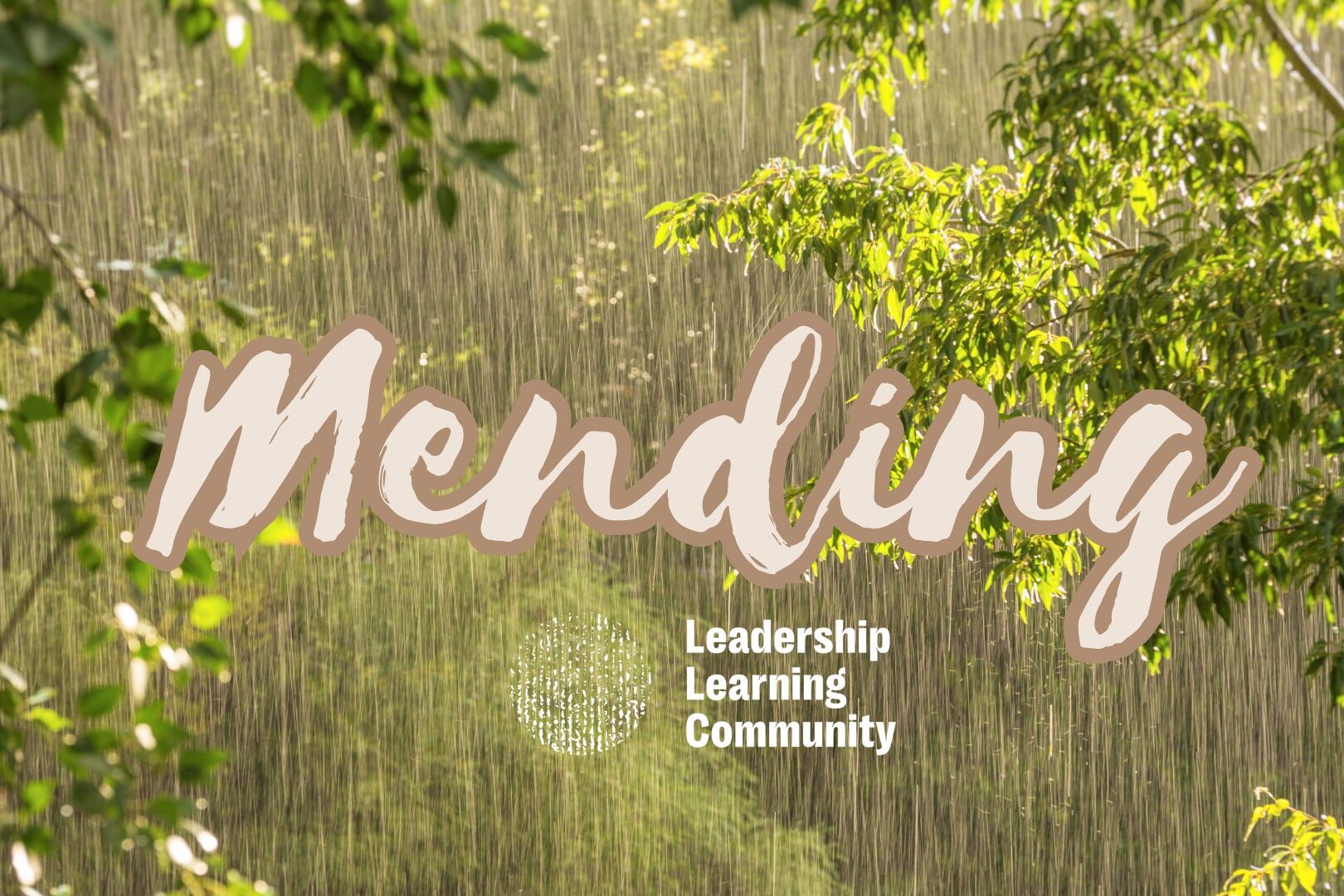In 2024, LLC hosted a virtual series called Mending, in which we explored generative conflict, healing, and liberatory leadership with Ericka Stallings, Iman Mills Gordon, Alexandra Urdaneta, Sadia Hassan, Nikki Dinh, Aida Cuadrado Bozzo, Marquita James, Brittni Chicuata, Jessica Marquez, Mizan Alkebulan-Abakah, Sizwe Andrews-Abakah, and over a hundred participants.
Why Mending?
In the past several years, LLC has been in circles with leaders of the social good sector and has been working through emotional leadership transitions, creating space for intergenerational leadership, paying attention to calling out and calling in culture, and processing all that has happened during and out of the pandemic. This year, we wanted to explore why mending matters to liberatory leaders, how we find paths through conflict, and what we can do as leaders of organizations to mend. By the end of this four-part virtual series, our hope was that the social good sector would have entry points to practicing mending as an essential part of their work towards equity and liberation by centering love, care, generative conflict, and healing.
These are some of our team’s reflections as to why mending matters:
- Nikki: “When we do this delicate work of liberation and prefiguring, we need to also deal with issues so we don’t end up with ruptures. How do we have differences and harmony at the same time?”
- Ericka: “So many conversations that we have about what is hard about doing this work (e.g., liberatory leadership, distributed leadership) is often about people not being able to see each other or getting over hurt, but also about the difficulty of collaboration. Sometimes, we use rules and laws in regular relationships, but what are the other ways we can work on relationships.”
- Iman: “Mending is an opportunity to be more intentional about how we [progressive organizations] work together despite our different approaches. The study of mending offers tools to move through potential conflict and remain focused on our shared end goals.”
- Ericka: “I think foundations or soil are really important. How relationships are rooted impact the resulting harvest after a storm/conflict.”
- Alex: “A lot of the work starts with yourself and your willingness to do it. It’s important to have conversations about your relationship with conflict and mending. It’s also a continuous process as you learn more about yourself.”
- Sadia: “Mending as a way to tend to both interpersonal and societal ruptures so we can heal and repair both forwards and backward. Thinking about rupture or conflict as a knot or tangle in the fabric of a story, some are deeper and take longer to tease out and others are just wrinkles that, even once you undo them, shape the narrative in a meaningful way.”
- Nikki: “Mending is something to learn and to practice regularly. We can hear/learn about mending many times, but if we don’t actively practice it, it doesn’t have a chance to transform us.”
Together we’ve learned:
- Conflict matters. LLC has looked back to lineage and ancestors, grounded in the present, and even space traveled into future possibilities to find that conflict perseveres as long as humans do. By viewing conflict as an opportunity for growth rather than avoiding it, we can engage in open and honest communication showing grace and accountability toward each other. Mending, therefore, is a continuous process. It requires ongoing effort and attention, and is not a one-time fix. Leaders, organizations, and systems must commit to long-term practices that support continuous healing and growth.
- Leaders can create spaces for regular reflection, feedback, and dialogue. Open communication and practice listening within your team, organization, or field encourages mending when rupture occurs. This could include hosting regular check-ins, prioritizing sharing learnings and experiences, facilitating workshops on conflict resolution and healing, or facilitating through actual conflict. Having spaces to practice mending is necessary for inner work, self, and collective healing, and can provide an opportunity for growth and transformation.
- Mending is a necessary step towards equity and liberation. Mending requires leaders to have awareness of and address power imbalances. To create equitable and just relationships, leaders must understand and address power dynamics within themselves, organizations they influence, and beyond. This involves centering those historically excluded, naming power, inner work, and the practice of sharing power.
- Mending can and should be approached with a liberatory lens. This means starting outside of systems and traditional power structures. Could you start with what an end goal might be? Could you start with joy or love? More specifically, mending can be creative and playful. The series explored various approaches to mending, including art, music, and experiential activities.
- Mending is a way to shift the narrative towards personal and systemic transformation: Stories shape our reality. What are the stories you’ve been telling yourself about change? Leadership? Conflict? Liberation? Mending the holes in those stories so you can tell new stories, revise old ones, and change your relationship to what is possible is an opportunity to transform yourself so you can transform the world.
How are we applying mending to our work?
- We are creating spaces for our team to reflect on conflict and our work to deepen our understanding of conflict resolution and liberatory practices. We collectively support each other, engage in conversations, and share tips for healing and joy.
- We are working to create more practice spaces and tools to help our team navigate conflict with a liberatory lens, exploring ways to learn and unlearn.
- We are sharing our learnings in the virtual learning spaces, and communities of practice we hold to propagate the gardening tools and practices leaders are engaging to address conflict, embrace transitions, and navigate co-leadership.
We invite you to explore and share our Mending Padlet – a collection of videos, learnings, quotes, and resources from our Mending 2024 virtual series.
We also want to express gratitude to all our speakers and participants for co-creating this space where we could connect, learn, and play. Also, if you’d like to help us by providing your feedback, please click on this survey.
Related Posts
September 30, 2024
The Healing Rhythm of Running
September 30, 2024



